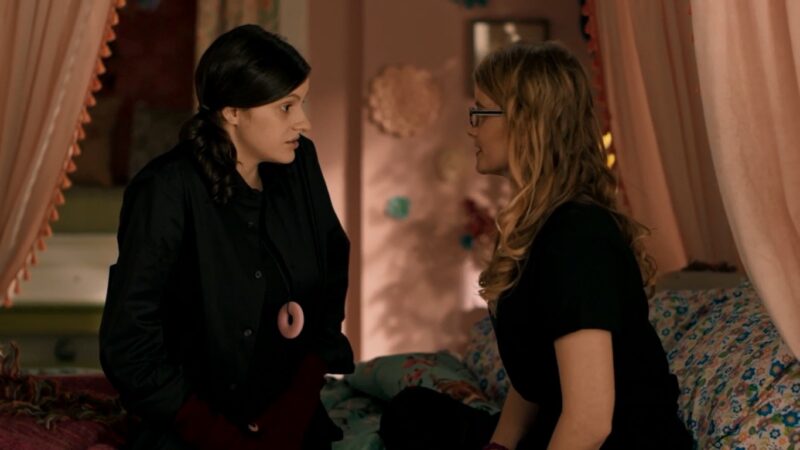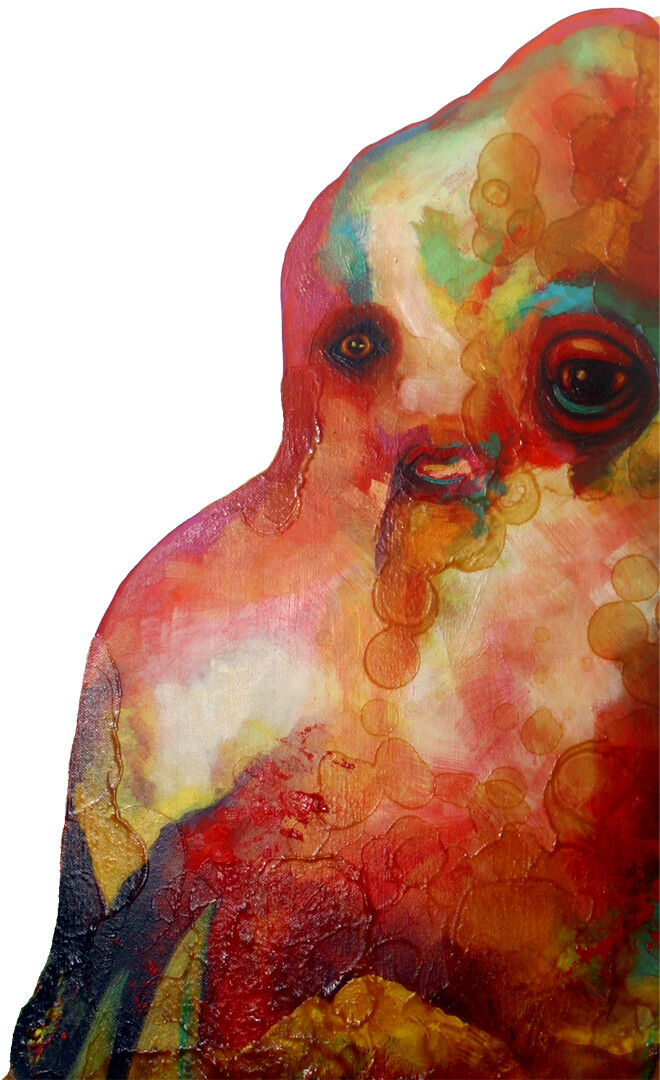
About two years back, I was watching Everything’s Gonna Be Ok, a television show written about characters with autism, played by actors who are actually autistic. While watching the show, I found myself relating to the characters in ways that are rare for me (I have hardly ever encountered characters on TV and in movies with whom I relate which has often left me feeling like some sort of alien) and in fact, the show was a major catalyst for my own realisation that I am autistic. The creator, Josh Thomas, was in fact diagnosed with autism towards the end of the production and his own character’s realisation of this is deeply touching to me.
There are many moments that stood out on the show to me but in particular, I was struck by the teenage character Matilda’s own ways of exploring her sexuality and romantic relationships; unconfined by neurotypical ideas of how a young woman should explore her desires, Matilda finds her own unconventional and non-monogamous ways of relating. It made me reflect fondly on my teenage self and her sexual and relationship foibles, it felt good to reflect on my young self fondly and with a sense of clarity I’d never had before; “Oh, shit” I thought “maybe you were autistic all along! That would explain a lot.” I am deeply sad that the series only had two seasons as for me it contains the most relatable and nuanced depictions of autism that I am yet to encounter.
Seeing ourselves in media matters and one scene in season one of Everything’s Gonna Be Ok made me realise this because it actually changed my life. In the scene, Matilda and her girlfriend, Drea, are exploring sexual intimacy, they ask how each other likes to be touched and Drea explains that she is hyposensitive to touch which means that when she is touched gently, she only feels it faintly as an uncomfortable tickle and so she needs firm touch in order to enjoy it. She then proceeds to demonstrate. “Oh my God, that’s me. I’m hyposensitive!” I realised and a tidal wave of feelings rushed in as my eyes welled with tears.
Despite being sex positive and relatively sexually open for my entire adult life, I have often struggled with navigating sex. Part of this is due to being raised in a culture that trains women to be people pleasers, part of this is due to being kinky and struggling to find people with complimentary desires to mine but another part, a big part, was something I’d always struggled to explain; feeling like there was something wrong with how I responded to touch.
Receiving light, loving, sensual touch has always made me deeply uncomfortable. Even writing the word “sensual” has my body tightening in discomfort and I feel as if the roof of my mouth is being scraped. The only vibrator that has ever done anything for me is a massive Hitachi style monstrosity which is plugged into a wall and I would prefer a hard slap over a gentle caress any day. Though I have spent my adulthood in relatively kink friendly spaces, I nonetheless picked up somewhere along the way the idea that if you don’t receive pleasure from gentle touch, it is related to trauma, or psychological hangups and that it is something which is broken about you and needs to be fixed. Even in sex positive circles, there can be narrow concepts of what “healthy” pleasure looks like which I believe hurts and alienates a lot of people.
Last year I had a therapist specialising in neurodiverence who told me that growing up autistic is like growing up being gaslit by the world as we are constantly taught that our experiences of things are wrong and not to be trusted. In essence, we are told that our non-normative responses to experiences are “all in our head” and therefore, should be ignored and pushed past.
Last year I saw a shiatsu masseuse and when I explained to him that I needed firm touch and wanted him to help me land back in my body, he said that he had a few autistic clients and they described it as wanting him to help them find the outlines of their body. A common autistic trait is to struggle with a sense of body awareness, I cannot speak for all autistic people (nobody can) but I suspect that some of my own lack of body awareness has not been a trait that is inherent to my autism but is related more to the fact that I’ve been taught by our culture to disconnect from my bodily experiences “that light isn’t too bright, that fan isn’t too loud, that hug isn’t too gentle”. Training in clown and butoh over the last few years has taught me bodily awareness that I did not have before, but landing in my body has also made me aware of how much sensory trauma I must face on a daily basis in the modern world. I am both hypersensitive and hyposensitive.
More and more, I am learning to advocate for what I need. When my allistic partner places his hand gently on me, I am able to ask him to either remove it or touch me in a different way and there is no shame or sense of either of us doing anything “wrong”, understanding myself as autistic has given me an understanding of -why- gentle touch feels like an electric shock, like a tickling sort of almost-pain. It helps me understand why the heavy thud of a paddle in a BDSM scene can be tremendously soothing and relaxing. I mourn for myself who ignored her own needs for so long, while hiding her regular meltdowns involving smashed crockery, rocking in a ball on the ground, screaming until losing her voice and self harming. Ever since learning I am autistic, my meltdowns have decreased dramatically, both in regularity and severity. Not only have I learned more about my sensory triggers, but I know some techniques for de-escalation and perhaps most importantly, I no longer feel shame for being an adult having tantrums while wondering if I’m crazy. Understanding that my autistic meltdowns were never temper tantrums but a nervous system response to overwhelm has removed the shame and when you remove shame, you take away the fuel to the fire.
I wish I had seen a show such as Everything’s Gonna Be Ok twenty years ago. I mourn all the time I spent hating myself, fighting myself and trying to fit myself into a world that wasn’t made for me. I mourn the struggles I had for so long to experience intimacy fully connected to my own needs. But I’m so grateful to have finally started to find a language to describe myself and how I work. I don’t like gentle touch, in fact it actually can feel so uncomfortable that it triggers my nervous system into self-defensive anger mode. Now I can say this without wondering what’s wrong with me… nothing is. I just process the world differently. I’m ok with that.
